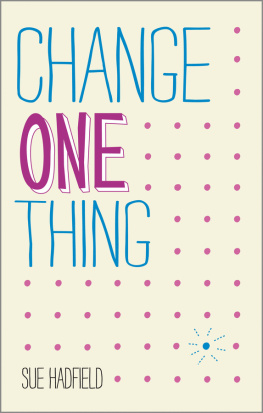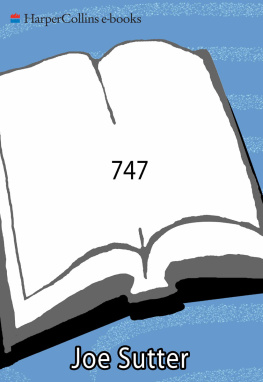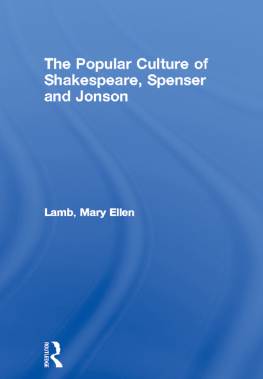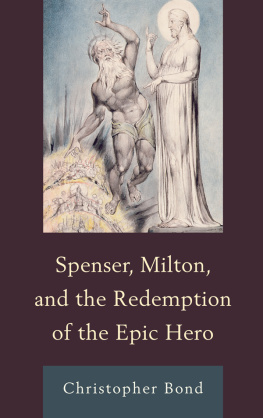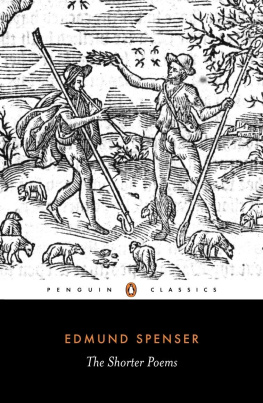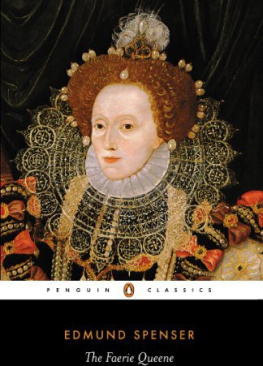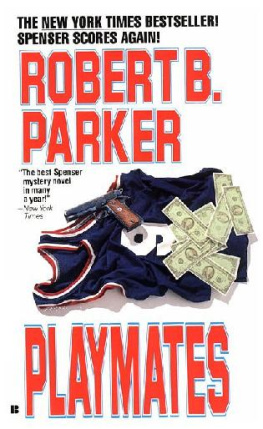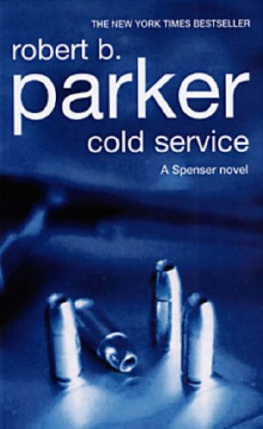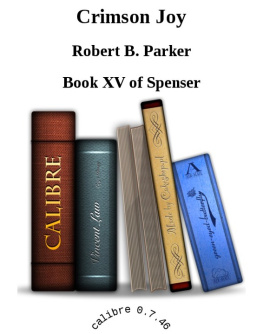Hadfield Andrew - Edmund Spenser: a life
Here you can read online Hadfield Andrew - Edmund Spenser: a life full text of the book (entire story) in english for free. Download pdf and epub, get meaning, cover and reviews about this ebook. City: Oxford, year: 2012, publisher: Oxford University Press, genre: Detective and thriller. Description of the work, (preface) as well as reviews are available. Best literature library LitArk.com created for fans of good reading and offers a wide selection of genres:
Romance novel
Science fiction
Adventure
Detective
Science
History
Home and family
Prose
Art
Politics
Computer
Non-fiction
Religion
Business
Children
Humor
Choose a favorite category and find really read worthwhile books. Enjoy immersion in the world of imagination, feel the emotions of the characters or learn something new for yourself, make an fascinating discovery.

- Book:Edmund Spenser: a life
- Author:
- Publisher:Oxford University Press
- Genre:
- Year:2012
- City:Oxford
- Rating:4 / 5
- Favourites:Add to favourites
- Your mark:
- 80
- 1
- 2
- 3
- 4
- 5
Edmund Spenser: a life: summary, description and annotation
We offer to read an annotation, description, summary or preface (depends on what the author of the book "Edmund Spenser: a life" wrote himself). If you haven't found the necessary information about the book — write in the comments, we will try to find it.
Edmund Spenser: a life — read online for free the complete book (whole text) full work
Below is the text of the book, divided by pages. System saving the place of the last page read, allows you to conveniently read the book "Edmund Spenser: a life" online for free, without having to search again every time where you left off. Put a bookmark, and you can go to the page where you finished reading at any time.
Font size:
Interval:
Bookmark:
A Life

ANDREW HADFIELD


Great Clarendon Street, Oxford OX2 6DP,
United Kingdom
Oxford University Press is a department of the University of Oxford.
It furthers the Universitys objective of excellence in research, scholarship,
and education by publishing worldwide. Oxford is a registered trade mark of
Oxford University Press in the UK and in certain other countries
Andrew Hadfield 2012
The moral rights of the author have been asserted
First Edition published 2012
Impression: 1
All rights reserved. No part of this publication may be reproduced, stored in
a retrieval system, or transmitted, in any form or by any means, without the
prior permission in writing of Oxford University Press, or as expressly permitted
by law, by licence or under terms agreed with the appropriate reprographics
rights organization. Enquiries concerning reproduction outside the scope of the
above should be sent to the Rights Department, Oxford University Press, at the
address above
You must not circulate this work in any other form
and you must impose this same condition on any acquirer
British Library Cataloguing in Publication Data
Data available
Library of Congress Cataloging in Publication Data
Data available
ISBN 9780199591022
Printed in Great Britain
on acid-free paper by
Clays Ltd, St Ives plc
FOR WILLIAM TIMOTHY MALEY
I have enjoyed writing this book more than any other I have written. I have been astonished at the generosity of vast numbers of people who have given up their time to help me complete this biography and it has certainly reaffirmed my faith in human nature. I only hope that I can repay some of them if given the chance.
I first conceived the idea of writing a biography of Edmund Spenser when I was asked to contribute an entry on his life for the Oxford Dictionary of National Biography in 2000 by the late Brian Harrison. I had never thought of writing a biography beforeand will almost certainly not write one againso this was an important event in my life. I could not have written the life without a British Academy Research Development Award (BARDA) and a Leverhulme Research Fellowship, together totalling two years (200810), as well as a years sabbatical from the University of Sussex, although I will add that that was a reward for having served as Head of Department. I was also the fortunate recipient of a short-term fellowship at the Folger Shakespeare Library, taken in the summer of 2009, where I had the great pleasure of working with a number of formidably learned colleagues in a congenial, scholarly atmosphere. A British Academy small grant awarded in 2011 enabled me to tidy up a large number of loose ends.
At OUP I have been more than fortunate in having had the opportunity to work with two outstanding editors, Andrew McNeillie, with whom I first discussed the project, and Jacqueline Baker, who has matched insight, enthusiasm, good sense, and tolerance to keep me on track. Rowena Anketell, Jacqueline Harvey, and Brendan Mac Evilly were exemplary and courteous professionals who saw the book develop from a messy typescript. I have also relied on a number of friends and colleagues for particular help: Andrew King in Cork has been a wonderful companion and host, driving me round all the Spenser locations we could find in his impressive red Alfa Romeo and discussing a vast number of Spenserian obsessions with jovial good humour, and he has been a rock during the inevitable emergencies that befall a field researcher (Everyone loses their passport now and again); Anne Fogarty and Ulf Messner, and Raymond Gillespie and Bernadette Cunningham have been equally generous and hospitable in Dublin; Howard Erskine-Hill put me up and put up with me at Pembroke College, Cambridge; Alan Bryson and Simon Healy have been kind, patient, and courteous in helping supplement my miserable palaeographic skills (No, that should be transcribed as Queen Elizabeth but, youre right that difficult hand could have written Edmund Spenser); Tarnya Cooper has been a fountain of knowledge about sixteenth-century portraits; Jane Grogan helped save me from a bull at Graney Abbey, while I impersonated Lucetta Templeman; Eric Klingelhofer has discussed a number of matters relating to the archaeological digs he has led at Kilcolman and elsewhere in Munster; John McGurk has advised me on Elizabethan military matters, especially musters; Kenneth Nicholls has shared his immense knowledge of life in sixteenth-century Munster; Elizabeth Evenden, Stephen Galbraith, and Steve May have educated me in the often confusing highways and byways of early modern books, texts, and manuscripts; Charles, Catherine, and Phoebe Harold-Barry, owners of Kilcolman Castle, were yet more people who were hospitable and most generous with their time to a stranger; Henry Woudhuysen talked me through a number of aspects of Spensers early literary career and sent me some vital unpublished research; and Jim Shapiro has been a great friend, mentor, and guide. Chapters have been read by a number of colleagues and friends: Alan Bryson, Peter Boxall, Patrick Cheney, Alison Hadfield, Margaret Healy, Andrew King, Elizabeth Oakley-Brown, Neil Rhodes, Jennifer Richards, Abigail Shinn, and Bart Van Es. I have especially enjoyed discussing the project with Patrick Cheney, Brian Cummings, and Matthew Dimmock. Two anonymous readers were exemplary, meticulous, and astringent, not only saving me from more than a few errors, factual, stylistic, and narrative, but both made constructive suggestions that significantly improved the book. While I was finishing off the book my friend Kevin Sharpe died. I am sorry that I did not have the chance to thank him properly for his help over the years.
I should also add that this book would not have been possible without the pioneering research of many who have laboured hard in the archives uncovering numerous facts about Spensers life, most significantly, Jean Brink, Douglas Hamer, A. C. Judson, and W. H. Welply. The research has been carried out in many locations and I have been more than grateful to kind and helpful staff at the Bodleian Library, Oxford; the British Library; Cambridge University Library; Castle Howard archives; the Codrington Library, All Souls College, Oxford; the Library of Gonville and Caius College, Cambridge; the Library of Pembroke College, Cambridge; Chatsworth House Archives; Chichester Cathedral Library; the Dutch Church, Austen friars, London; Folger Shakespeare Library; Guildhall Library, London; Hampshire Record Office, Winchester; the Huguenot Library, London; Lambeth Palace Library; London Metropolitan Archives; the National Archives, Kew; the National Archives of Ireland, Dublin; the National Library of Ireland, Dublin; the National Library of Wales, Aberystwyth; National Maritime Museum, Greenwich; the Royal Irish Academy Library; Saffron Walden Town Museum; Suffolk County Record Office, Bury St Edmunds; Trinity College Library, Dublin; the Library at University College, Cork; and Westminster City Archives. I have also been grateful to the staff at a number of churches, houses, monuments, and museums: Canons Ashby, Northamptonshire; Christ Church Cathedral, Dublin; The collegiate church of St Mary, Youghal; Dublin Castle; Farleigh House, Farleigh Wallop; Hill Hall, Essex; Limerick Cathedral; Ormond Castle, Carrick-on-Suir; Rathfanham Castle, Dublin; Rochester Cathedral; St Margarets church, Westminster; St Patricks Cathedral, Dublin; and Saffron Walden Museum.
Font size:
Interval:
Bookmark:
Similar books «Edmund Spenser: a life»
Look at similar books to Edmund Spenser: a life. We have selected literature similar in name and meaning in the hope of providing readers with more options to find new, interesting, not yet read works.
Discussion, reviews of the book Edmund Spenser: a life and just readers' own opinions. Leave your comments, write what you think about the work, its meaning or the main characters. Specify what exactly you liked and what you didn't like, and why you think so.

